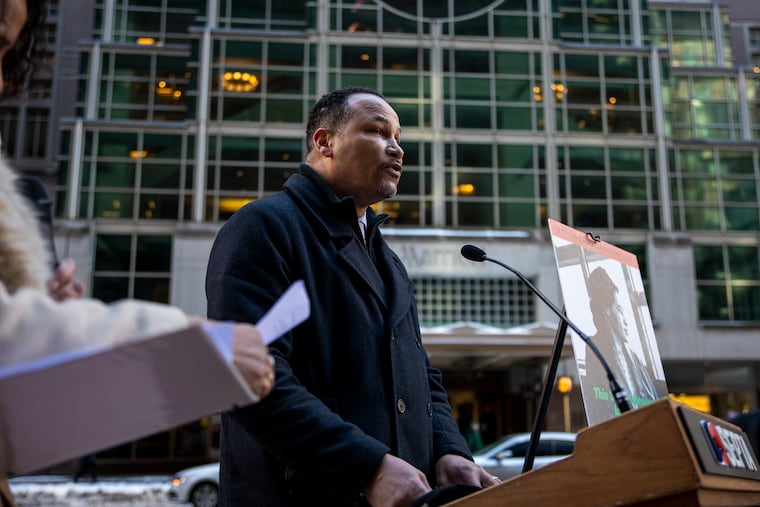SEPTA is saving $38 million by implementing employee ideas. Can the effort improve workers’ low morale?
SEPTA's “organizational health index” ranked in the bottom 25th percentile among workplaces, according to a McKinsey survey.

SEPTA had two problems. First, it needed to save money, fast.
Second, the transit authority’s “organizational health index” ranked in the bottom 25th percentile among workplaces, according to a survey of employees by business consultant McKinsey & Co. Hourly workers took a particularly dim view of company leadership and culture.
In 2021 the agency launched a massive brainstorming effort, called Efficiency & Accountability and intended to address both issues. Employees at all levels proposed 468 ideas for improvements and then developed the most promising ones in collaboration with colleagues and top executives.
Eighteen employee-generated ideas implemented last year will generate $38 million in recurring annual savings or revenue for SEPTA, the agency noted in its recently released Transformation Office annual progress report. More than 100 additional projects are in the pipeline.
The documented savings are important, but “change is only really sustainable if we also tackle strengthening our culture here,” said Emily Addison, SEPTA’s deputy chief of transformation for performance.
SEPTA says it is hurtling toward a “fiscal cliff,” projecting a $270 million deficit in the operations budget by the end of the 2024 fiscal year next summer, as federal pandemic aid runs out. Other transit systems in the nation are bracing for the same thing.
Proving that it is finding efficiencies and working to generate ridership (and revenue) are crucial as SEPTA asks the state and local leaders for funding, officials said. On the revenue side, SEPTA has been pushing the Key Advantage program, which allows employers to buy transit passes at a discount and offer them to their workers free.
“There’s a difference between purely looking at this as [a set of] initiatives that can save us money, and a program that is going to result in a better organization,” said Erik Johanson, senior director of budgets and transformation. “What we’re really focused on is the latter.”
Said SEPTA board member Robert Fox, who has overseen the program: “We did it because we had to do it.”
SEPTA hired McKinsey on a $7 million contract in 2020 to help it make systemic changes to survive long term, as it and other transit agencies around the nation wrestle with the post-COVID-19 world without the cushion of federal pandemic aid.
Some transit advocates criticized SEPTA for spending so much on McKinsey’s advice amid other pressing priorities, such as the ongoing shortage of bus drivers that is causing delays on many routes. The management firm also has gamed out post-pandemic scenarios with the Metropolitan Transit Authority in New York, Washington’s Metro system, and the London transit network.
The SEPTA employee survey was conducted in late 2020 and early 2021, with salaried administrative and management workers as well as hourly workers asked to rate aspects of company culture.
There were differences between the two groups, especially on their assessment of SEPTA leadership practices.
For example, 40% of the salaried workers said they “often” or “almost always” feel a sense of personal ownership of their work, compared to 28% of hourly employees.
And 41% of salaried employees rated the work environment as “open and trusting” but just 31% of hourly respondents said they often or almost always felt their workplace was open and trusting.
The hourly workers, who include SEPTA’s frontline employees and are about 80% of the workforce, also gave management low grades on consulting, supporting, and challenging them.
SEPTA’s overall score was compared to the thousands of other workplaces in McKinsey & Co.’s database, which placed it in the bottom 25% of those the consultancy had surveyed on employee attitudes. Results at SEPTA were based on answers from 2,405 employees who responded.
“The survey showed that employees want to be listened to, they want to have a voice, they want to be empowered, and they want their ideas to be known and shared,” said Ayanna Matlock, deputy chief transformation officer for organizational health.
An employee-suggested change to the acceleration settings for SEPTA’s hybrid bus has saved 101,708 gallons of fuel since it took effect last July, which equals about $377,337 in savings,the transit authority’s progress report on the effort said.
An idea to decommission eight of the oldest Regional Rail cars in the fleet, given lighter ridership, saved $3.1 million in repairs and upkeepaccording to the report. Another 22 cars will be taken offline over the next two years.
And another suggestion to have waste haulers empty trash cans only when they were full, instead of on a set schedule, has already saved $143,637, the report said.
“Our employee ranking was lower than it should be,” said Fox, the SEPTA board member. “That’s why the way this [program] was done was ground-up instead of top-down.” He noted it will be difficult to attract and retain good employees in the future “if we don’t have an improving work environment” that’s more transparent and inclusive.
This story has been updated to correct the amount of money SEPTA has saved. It is $38 million.